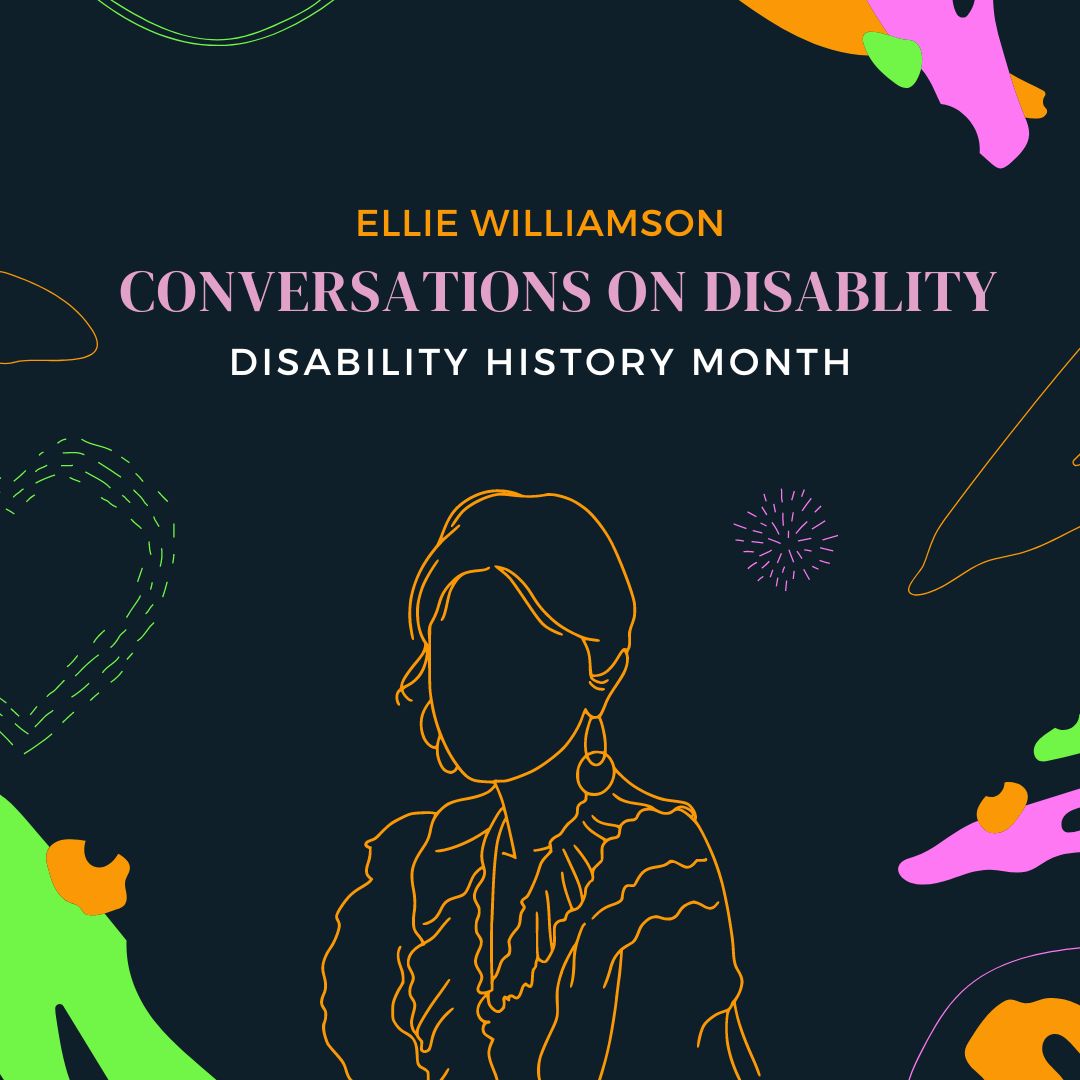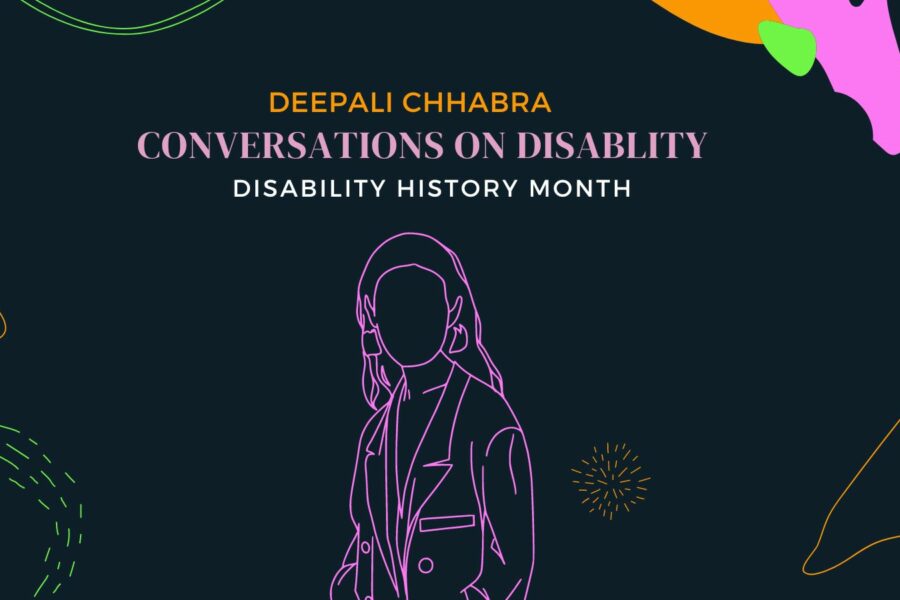Perhaps it was knowing her mother was living a full life at an older age or just because Ellie has honey-tones in her voice – either way this interview is brimming with positivity and may shift your own perception of MS.

Conversation with Ellie Williamson
At this point in the series, multiple sclerosis was the main character, so I decided to speak to a very dear friend – Ellie Williamson – whose mother, Mel, was diagnosed four years ago. Ellie is vibrant, caring, incredibly intelligent and all sorts of admirable things, but these qualities are pretty much summed up by the fact that she ran the London Marathon for the MS Trust. However, Mel is really the star of this conversation I wanted to speak to someone who has been there for the fallout of a new diagnosis. Studying the changes in my own family dynamics, whilst not significant, they do irrevocably shift. During my ‘peak disability’ weeks, Ellie was there as voice of reason, reassurance and comfort. Perhaps it was knowing her mother was living a full life at an older age or just because Ellie has honey-tones in her voice – either way this interview is brimming with positivity and may shift your own perception of MS.
What do you remember about the early stages of finding out your mother has MS?
“So there are lots of different symptoms and it can be that a lot people don’t know what it is or that it even exists. We had no idea what was going on for a long time. One day, out of the blue, her eyes went to double vision. She was driving down to Cornwall and had to pull over, she assumed she was getting a migraine, so she called her friends, but her vision remained double …. At the time you don’t assume it will be something like MS”
As I transcribe this from the recording, I feel like I should add audio of the reasonably dramatic number of gasps between us. Ellie goes onto discuss how Mel sported an eye-patch for a year (!!!) during which time she underwent tests to diagnose what was going on. Mel’s diagnosis experience is – brutally – not unique and it takes people years to finally identity their symptoms with MS. To say I completely understand where they are coming from would be a false claim because I was very fortunate to be diagnosed in less than 2 months. I was in Edinburgh which happens to be the epicentre for MS research and has funded by the MS Society since 2007.
There are Reddit pages packed with fury that all share the sentiment behind Ellie’s initial remark that a lot of people don’t know what MS is. In Cheryl Gowan’s Inclusive Communities report she comments on how a pre-cursor for community bonds is a standardised understanding of individuals experiences. She continues to observe that although the UK is moving toward a practically more inclusive society, this only facilitates physical community but there is a defined misunderstanding to how able people view the disabled diaspora. Gowan’s study confirmed my own fears that having a disability would compromise my ‘economic’ worth, which is why I honestly, initially resisted finding a community. My playground fear of being labelled the ‘special group’ stopped me from discovering the same kinship or even comfort that Mel experienced.
“Something she found was that as she told her friends, she was reached out to all the time and found a lot of solace in speaking to people. For a lot of these people its ‘very’ invisible so you have no idea until you start speaking to people. That has massively helped her to find a sense of community”
“So I don’t remember the specific moment where she was told that she has this condition, maybe because she had incredible specialists, so the way that she was told about it and the way she told us about it was very gentle – rather than out of the blue chat. What I do remember is that the initial uncertainty was very difficult. I was 18 when we found out and all I had seen some people with progressive MS …. So, in my head I reached for the worst and that was scary time. She [Mel] has got her special glasses but now I never fail to appreciate the massive freedom of driving and seeing”
How are the reactions from others when you tell people your mum has MS?
“Occasionally, and I would be the same, they have an intense sympathy so they go on and on asking if she is ok. But for me, currently, my mum is thriving with it all and her new glasses. Yes, there are days where she gets tired, but other than that nothing drastic”
I’ll be honest, I wasn’t expecting an answer that would stray from this. People tend to react with confusion, sympathy or a stressful combination of both. However, it is interesting that Ellie (able-bodied Ellie!) gets the same response. She goes on to say..
‘Obviously I don’t want to demean what she is going through but people assume immediately she is really ill. I almost want to show people that she is living a ‘normal’ life …
I don’t think of it as destigmatising, is it more educating. It’s a funny one that though it is more common than we think it is not hugely talked about”
Has there been a time where you thought your body could let you down?
This question is in blatant reference to the fact that MS is genetic which can complicate a person’s relationship to having children of their own. No matter how much babble about MS being almost equivalent to a ‘normal’ life, I have had long conversations about being passing on MS and how much I would hate to do that to someone. For Ellie,
“.. It puts into perspective how grateful we should be for our bodies, but it really does make you think like something small, like when runny nose, you just miss your nose and you think oh I miss my life when my nose wasn’t runny! … It just accelerated that I don’t appreciate health enough and things can change literally within an hour… And I think that’s why sometimes when I speak about it I feel guilty that I don’t say anything, maybe I forget that it is a lot harder than she lets on … I am always proud of her but I have never been more proud. I have never really thought of it as hereditary, but I see my mum as stronger through it all.”
Has there ever been a time where you hesitated to tell people about MS?
“I only mention it to people if they ask and when they ask because all my close friends know and if they ask how is my family I would bring it up. But I wouldn’t bring it up if it wasn’t a personal conversation. Probably because she does want to use her journey as her own and only talk about it if it is completely to do with her”
Ellie was quick to reassure me that her family is her mainstay, and she can openly strategize ways to help Mel when there is a bad day. In the first few months of my diagnosis, I forbade anyone who knew to tell others. I saw it as protection for both me and my family; they would be bombarded with questions or radical ways to heal me and I would be exposed (Once again, I am now indifferent to the amount of people that know). It is a mark of Ellies good nature that she resisted making it about anyone but Mel, also shedding light on how friends and family navigate delicate conversations.
How has her relationship with her mum changed?
“Ihave always had a super healthy relationship with my mum. And it is not that I appreciate her more, I am always very appreciative. It really put into perspective how strong people can be and how much she [Mel] tries to shade me [Ellie] from any harm even now when I am a fully grown adult. It puts into perspective how thoughtful and resilient she [Mel] is and will always put being a mother over anything … only finds herself in a pull and tug situation when she [Mel] is tired but she won’t rest, she is like ‘im fine’ but she needs rest. She always does in the end…”
I thought it best to leave the interview on this note with a juicy amount of food for thought. Speaking to Ellie was, as expected, refreshing and a strong reminder of how disability dynamics do not have to be bleak. Nor does it transform relationships to the characteristic carer-patient duo. If there is anything to takeaway, it is how education surrounding MS and other invisible disabilities could slam our foot on the gas for a truly inclusive society.





Leave a Comment